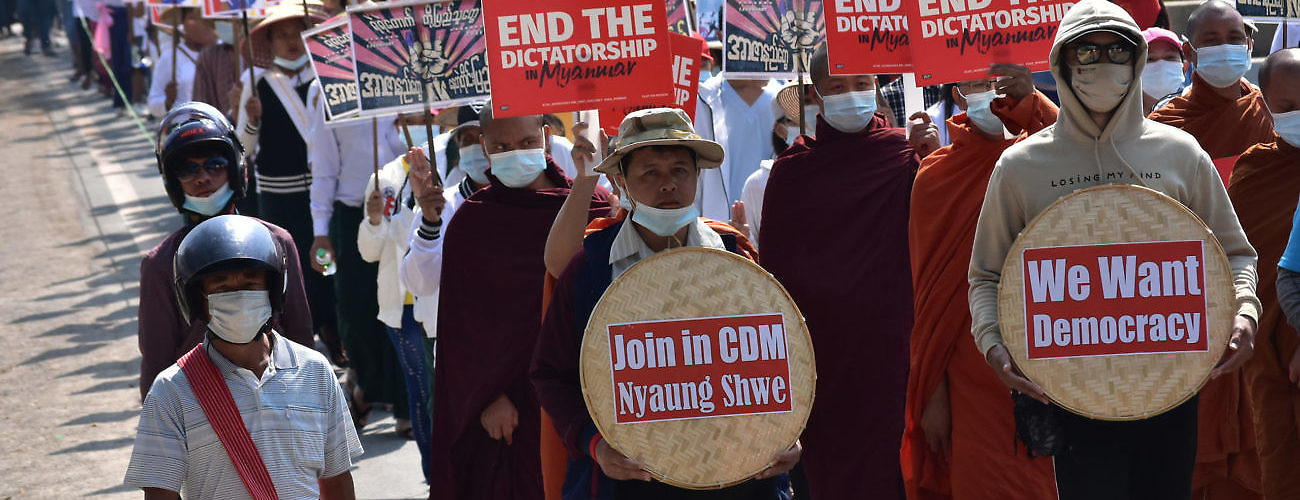People take to the streets in Nyaungshwe, Myanmar, to protest the military coup. March 2, 2021. (R. Bociaga/Shutterstock.com)
Since seizing power in a coup on February 1, 2021, Myanmar’s military has launched a violent crackdown against anti-coup protesters—a campaign of terror that may amount to crimes against humanity. With violence spreading, there are fears that the country is slipping toward full-scale civil war and state collapse. The international community has appeared almost powerless to respond to this human rights crisis, reflecting a broader weakening of its resolve to prevent and respond to atrocity crimes over the last decade.
This policy paper analyzes the human rights crisis created by the coup in Myanmar and assesses the response of the UN, within the context of broader international efforts, when viewed against the many commitments that have been made to protect people from atrocity crimes. The first section outlines the different elements of the human rights crisis and the violations that have been occurring. The second section places the events in Myanmar in the context of international commitments, including by the UN, to address atrocity crimes. The third section reviews the human rights tools that are at the disposal of the UN to understand what works and what does not and to highlight innovative ways to address such a challenging situation. The paper concludes with proposals for what an agenda for protection in Myanmar might entail, building on the ambitious Call to Action for Human Rights launched by the UN secretary-general in 2020.
The unfolding tragedy in Myanmar is one of the first major tests of the secretary-general’s initiative, and so far, the UN’s response—both as an intergovernmental body of member states and as a system of operational entities—has been woefully inadequate. While there is no simple recipe for halting the atrocity crimes, the UN could take a combination of measures at several levels:
- Grounding the response in a political strategy;
- Increasing capacity for human rights monitoring and quiet diplomacy;
- Providing clear leadership that encourages a less risk-averse approach;
- Devising a whole-of-system approach to the UN’s response;
- Scaling up protection services; and
- Supporting existing nationally or locally-led protection efforts.








